Sanfic Documentary Lab Gets Personal, From Focusing on Mortality in ‘Tantas Nenas’ to Reckoning With Generational Trauma in ‘Death of the Sun’ (EXCLUSIVE)
- Oops!Something went wrong.Please try again later.
- Oops!Something went wrong.Please try again later.
- Oops!Something went wrong.Please try again later.
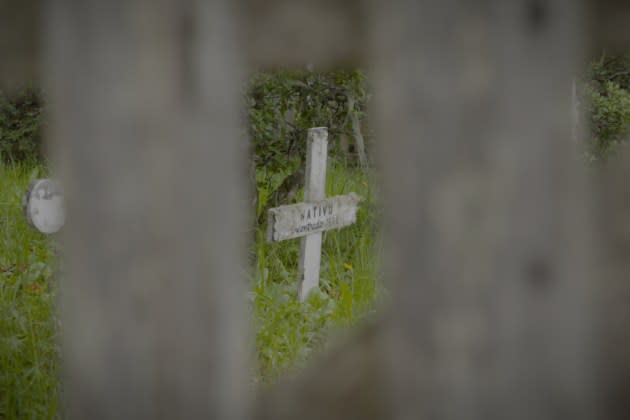
Oh My Gómez! Films’ Ramiro Pavón, producer of Ana Katz’s Sundance title “El perro que no calla,” and Rocío Romero Quintana, behind 2016 Berlinale Generation 14+ winner “Las Plantas,” will both pitch their latest doc projects at this month’s Sanfic Industria, one of the biggest industry forums in South America.
Another project at its Documentary Lab is sourced from Paula Zyngierman at Argentina’s MaravillaCine, which backed “That Weekend” and “Marilyn.”
More from Variety
“This year we received a large number of applications from both directors and producers with large experience as well as projects by new talents,” Gabriela Sandoval, head of Sanfic Industria, told Variety, noting that some projects have been sourced from allied international industry platforms such as Industria Guadalajara, DocsMx, Fidba, Taller de productores de Panamá, Arca Residencia.
The 10 Documentary Lab projects will be presented in Santiago de Chile over August 23-26 with the final pitch on Aug. 26 before a live and online jury.
Group and individual pitch training will be guided by Consuelo Castillo at Colombia’s DOC: CO, along with Santiago Maza, at Gael Garcia Bernal and Diego Luna-founded La Corriente del Golfo,
Pablo Mondragón, “Chile 76” producer Juan Pablo Gugliotta and Eloisa López will advise on marketing, financing, budget and broader distribution.
Here are takeaways on this year’s selection, drawn from Argentina, Brazil, Chile and Colombia.
More Than Just Cinema
“All My Nenas,” directed by Chile’s Kamila Véliz Hermosilla, documents her mother’s death from cancer while subsequently centering on the role of the caretakers alongside her. In addition to the film, the team is creating the Mi Nena Foundation to help and accompany women with breast cancer and their caregivers. “We know that “Tantas Nenas” transcends beyond being a movie; we believe that the scope of this story is transversal and urgent,” said Véliz Hermosilla.
In Paola Campos’ “On The Way Home,” the Chilean director gives back by teaching film workshops in her hometown, enriching the community by opening up poignant discussions on topics long-buried.
Stories of Inward Reflection, Identity and Heritage Reign
Valentina Llorens’ “The Aunts” documents her affluent ancestry through found footage; Clio Dinamarca’s “Mordant” focuses on the director’s correspondence with a trans man imprisoned for defending his life; “La Muerte Del Sol,” from Camila Caballero Guzmán, poetically journeys into her relationship with her blind grandmother. All prove that intimate portrayals filmed close to the chest are valuable in dissecting identity and, in turn, understanding broader social constructs.

“Re-visiting family archives in an irreverent way calls me to think about new versions of family history and how those women, behind the scenes, saw the world,” Llorens opined.
Stacked with Prior Accolades
Pavón co-produced Felipe Gómez Aparicio’s 2021 Tribeca title “El perfecto David” and “El perro que no calla” by Ana Katz, which premiered at Sundance. Vicente Barros Bordeau was the screenwriter and producer of “Médula,”directed by Melisa Miranda, which premiered at IDFA. Romero Quintana produced Roberto Doveris title “Las Plantas” a 2016 Berlinale Generation 14+ best feature film award winner.
Social Justice Issues Remain Relevant
Water, a vital resource, is scarce in Vicente Barros Bordeu’s, “Water or Death,” Colombia’s state-backed violence on full display in Andrés Chaves-directed “La Grieta”; filmmaker Joyce Prado dives into domestic workers unions in “She Is Almost Family,” whose voices, producer Tamires Serket commented, “are those of women who fight, who clean, who take care of many people and who still have their labor and social rights succumbed by the blurred relationship of affection in many Brazilian homes. The film shows the remains of a Brazil that ceased to exist more than 200 years ago, our colonial history is still present, unfortunately.”
“There are very personal stories and new perspectives regarding family and social losses, drug trafficking, or social, environmental, and territorial conflicts,” mused Sandoval.
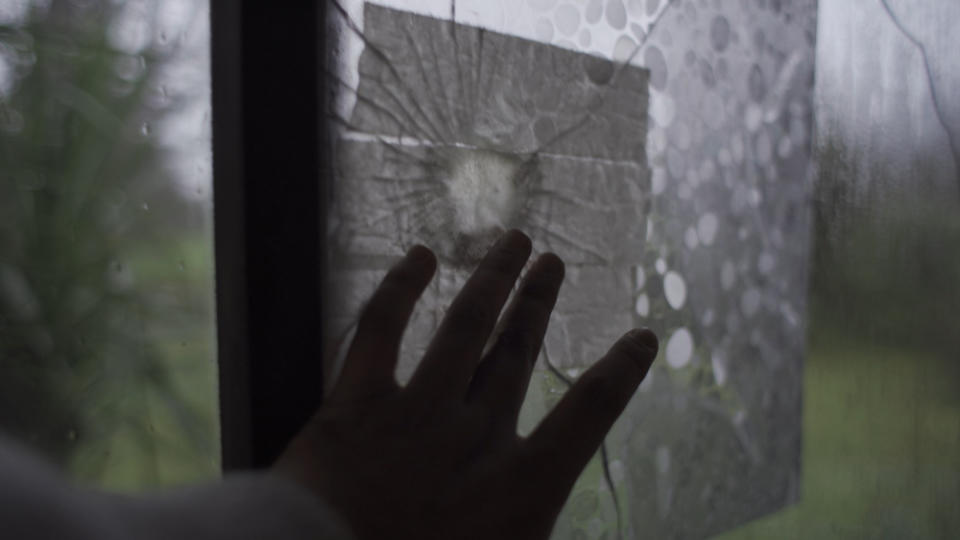
2023 Santiago Lab: Documentary Selection
“Las Tias,” (“The Aunts”) Valentina Llorens, Argentina
16mm archival footage and letters sent home depict the lives of three well-to-do sisters in an historical portrait of high society as curated by niece Llorens, who pieces them together to “capture everyday moments and political events of great historical relevance, offering an intimate and authentic perspective of life at that time, leaving an unparalleled cinematic legacy.” Produced by Paula Zyngierman, alongside ASE-SINE, the project took part in Berlinale-backed Talents Buenos Aires in 2022, selected for a script workshop with boundary-breaking director Albertina Carri (“Los Rubios”). It has earned a creation grant in 2022 from the National Fund for the Arts, supported by Argentine film agency INCAA.
“Museo de la noche,” (“Museum of the Night”) Fermín Eloy Acosta, Argentina
Attempting to revive the storied escapades of New York queer commune The Ridiculous Theatrical Company, that featured cultural icons like Puerto Rican actor Mario Montez (“Flaming Creatures”), the director dove into a seven-year journey alongside Argentine artist, Leandro Katz, who documented the troupe for six years between the 1960s and 1970s. Katz hazily recalls his time with the troupe and via photographs, film archives, documents, diaries and video testimonies, the film “reconstructs a series of events linked to New York’s queer counterculture and art, but also reflects on the limits and powers of archiving a life, said producer Pavón of Buenos Aires-based Oh My Gomez! Films. The first feature for Eloy Acosta(“Implantación”).

“Agua o Muerte,” (“Water or Death”) Vicente Barros Bordeu, Chile
Sounding the alarm on the exploitation of water, Barros Bordeu takes an observational approach, gently framing the landscape of Petorca while documenting the harsh restrictions on the community. The film also shows the inverse, nearby Avocado farms overflowing with water, which has turned into a commodity rather than something necessary for survival. Co-produced by Chile’s Mimbre and Ursus Films (“Pastora”), the film participated in 3 Puertos Cine of Austra Lab and gained preliminary financing from the Audiovisual Development Fund in Chile.
“Incorporating great audiovisual value and discussing a local theme with a global scope, we will access characters who fight, despair, suffer and live in a dying natural habitat,” relayed Rocío Romero Quintana, co-founder of Mimbre Films.
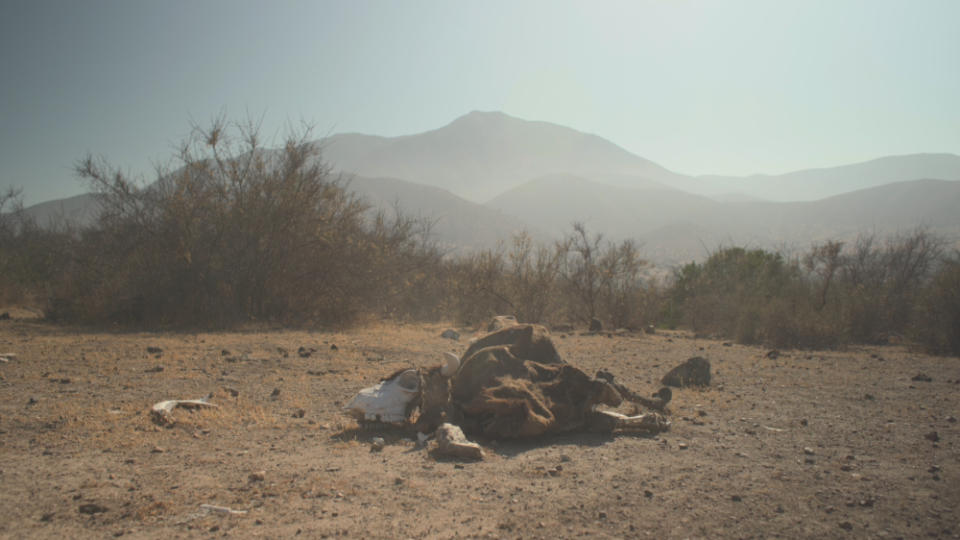
“La Grieta,” (Andrés Chaves, Colombia)
Softly fusing fiction-inspired visuals with archival footage, the documentary is able to breach the walls of the National University of Colombia, telling tales of brutal state-sanctioned violence as the University morphs from promising institution of higher learning to a mass grave site of the fallen students who dared to dissent. It “delves into the way in which, as a society, we’ve decided to give the campus of the National University a tragic destiny, a space in which the architectural beauty and the landscape go hand in hand with death,” according to director Andrés Chaves.
Produced by Adriana Agudelo’s CostaDocs (“Cartucho”), the project was the winner of the documentary development award from the Colombian Film Fund. Seen at Guadalajara Fest’s Co-production Meeting.
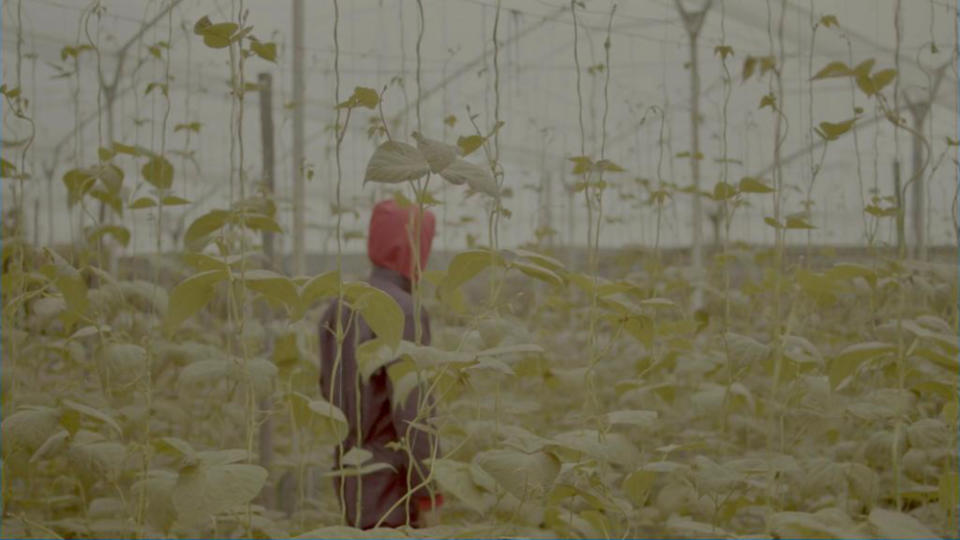
“Quase da Família,” (“She Is Almost Family,” Joyce Prado, Brazil)
Inspired by the historical actions of Laudelina de Campos Melo, the first domestic worker to found a union, the film documents the ongoing struggles of those in the field. Through discussions with historians, educators and laborers, it discusses class consciousness and the precarious position of being “part of the family,” when it comes to domestic labor.
Written by Tamiris Hilário, Lais Mota and Steven Phil, the project is directed by Joyce Prado (“Empowerfull” ) and produced by Steven Phil and Guilherme de Almeida Prado alongside CEO of Operahaus Features, Tamires Serket (“Three Kings”). It took part in DOCsMC, BRLab and DOCSP and won a William Graves-Firelight Media development prize.

“Mordaz,” (“Mordant,” Clio Dinamarca, Chile)
An introspective look at transmasculinity, as the director Clio Dinamarca follows the path toward a concrete identity, laying bare the struggles encountered along the way. On the periphery, the letters Dinamarca (“La sombra que habito”) sends to a young trans man incarcerated for self-defense. As Dinamarca explains it’s “an autobiographical exercise born from the constant questioning of one’s own trans identity.” Produced by Nicolás Videla (“Travesti Odyssey”) at Chile’s Cinespecie, a production house focused on LGBTQIA+ stories.
“En el Camino a Casa,” (“On The Way Home,” Paola Campos, Chile)
Campos, whose debut doc short “La Extraña” scooped best screenplay and film at BSFF-19 and Fedochi 2019, “On the Way Home” recounts the return to her childhood school amidst the Mapuche conflict. There, she teaches film workshops to children and struggles with the concept of belonging as discussions surface, breaking open old wounds. The project secured moneys from the Chilean Audiovisual Fund in 2020 and the Fund for Strengthening Chilean Cinema in 2021. Produced by Ursus Films’ Vicente Barros (“Educadores”), who concludes that the film “arises from questions and deep uncertainties. At the same time it connects different realities and perspectives on territorial problems.”
“Tantas Nenas,” (“All My Nenas”) Chile
With a video camera she inherited upon her mother’s terminal cancer diagnosis, Véliz Hermosilla makes a heartfelt attempt to immortalize their final moments, with 90-hours of archive material in various formats curated to craft her debut feature. Produced by Pepe Rovano at Axis Mundi Producciones, it took part in DocMontevideo and was an official selection at Lab Cine Lebu in Chile, winning the Documentary In Production at Chile’s Antofa Lab and receiving support from Chile’s Audiovisual Fund.
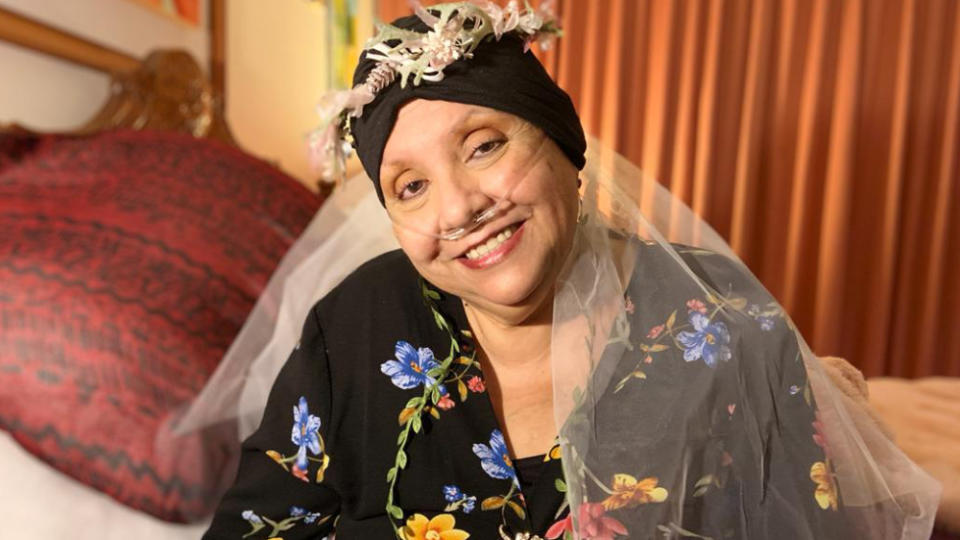
“Kiepja y Anne,” (Ludmila Rogel, Argentina)
In 1964, Selk’nam shaman Lola Kiepja and French-American anthropologist Anne Chapman met in Tierra del Fuego. Decades later, heritage is unearthed as Chapman’s archives are opened, revealing materials that document their time together. Kiepja’s ancestors and Selk’nam women grapple with the consequences of a family legacy becoming an unwilling artifact. Directed by Ludmila Rogel (“Underwater Mysteries”) and produced by Silvana Jaldín Villarroel (“La Sociedad”) at UNTDF, the project invites dialogue around the dissemination of history when it comes to oft-marginalized communities who’ve had their culture erased by the same people who wish to profit from it.
“La Muerte del Sol,” (“Death of the Sun,” Camila Caballero Guzmán, Colombia)
Poetic and encompassing, Caballero Guzmán (“Flores Frescas”) sets out to tell the story of her grandmother, Luz, who goes blind after suffering from glaucoma. Her debut feature film delves into a sordid past to reclaim a brighter future as the pair confront hard-fought lives, a serene humanity taking hold to guide them forward, past generational trauma. Produced by Andrea Madrid at Bogotá-based Leví Films alongside Colinita Cine.
Best of Variety
Sign up for Variety’s Newsletter. For the latest news, follow us on Facebook, Twitter, and Instagram.

